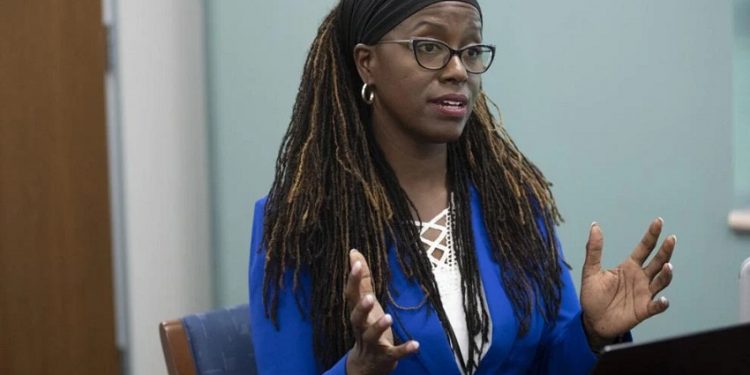Astoria, OR – Oregon’s education leaders, including Governor Tina Kotek and state Education Director Charlene Williams, have announced their refusal to comply with a recent federal ultimatum demanding the end of certain diversity, equity, and inclusion (DEI) programs in schools. The move comes after the U.S. Department of Education issued an April 3 letter to state education officials nationwide, warning them to eliminate “certain DEI practices” or face the loss of critical federal funding under Title I.
Title I funding, which supports educational programs for low-income students, accounts for a significant portion of Oregon’s public school budget. However, despite the potential financial consequences—approximately $134 million in Title I funding for Oregon—state officials have made it clear that they will not back down from their commitment to DEI initiatives.
“I promised Oregonians that I would not back down from a fight when it comes to safeguarding Oregon values,” Governor Kotek said in a statement. “Making sure every child has the opportunity to meet their future promise with a strong public education is one of the most fundamental responsibilities of government.”
In a letter sent Thursday, Director Williams informed federal officials that Oregon would not sign the confirmation letter or mandate schools to cut programs aimed at supporting diversity, equity, and inclusion. The state’s firm stance places it in alignment with Washington, whose education director also refused to comply with the federal directive.
Williams emphasized in her correspondence that Oregon had already received approval from the U.S. Department of Education for compliance with federal civil rights laws in the past, including programs under the Every Student Succeeds Act (ESSA) and the Individuals with Disabilities Education Act (IDEA). She contended that Oregon’s DEI initiatives align with both state and federal law and should not be considered violations of nondiscrimination requirements under Title VI of the Civil Rights Act of 1964.
Despite the threats to withhold Title I funding, Oregon’s education leaders argue that the federal government is unlawfully altering the conditions of funding already promised to the state. Williams criticized the Education Department for bypassing formal rulemaking procedures and for failing to define what constitutes “illegal DEI practices.”
“Oregon remains fiercely committed to its values of diversity, equity, and inclusion,” Williams wrote. “We celebrate our differences and common humanity. Our moral and ethical obligation is to stand up for public education.”
Governor Kotek reiterated the state’s position, stating, “We will not tolerate this unwarranted and unlawful attempt to take away resources promised to Oregon students and paid for by the tax dollars we send to the federal government.”
Oregon’s stance has garnered both support and opposition. While many education advocates and officials praise the state’s dedication to inclusivity, several Republican members of the Oregon House have called for a federal investigation into the state’s DEI programs. In a letter to U.S. Secretary of Education Linda McMahon, three Republican lawmakers demanded an inquiry into programs they described as discriminatory, including the Oregon Teacher Scholars Program and the Educator Equity Act, both of which aim to increase diversity in the state’s teaching workforce.
The U.S. Department of Education’s ultimatum also comes amid several ongoing lawsuits challenging the federal directive. Groups such as the American Federation of Teachers, the National Education Association, and the American Civil Liberties Union have filed suits against the Education Department, accusing it of unlawfully threatening funding based on political ideologies.
For now, Oregon remains committed to its values of diversity and inclusion in education, vowing to fight any attempt to dismantle programs that support these ideals. The state’s decision will likely set the stage for further legal battles as the U.S. Department of Education continues to enforce its position on DEI practices across the nation.













